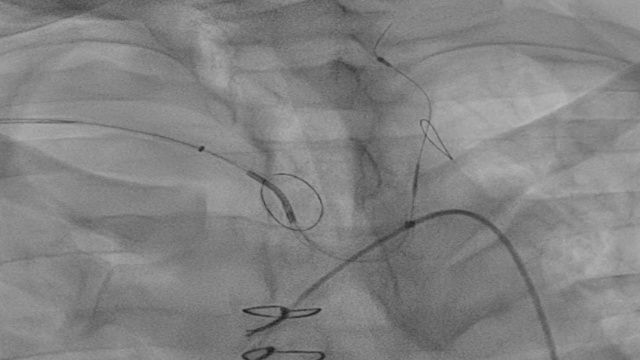3136 results for «8»
3136 results
Align for the future with Myval THV series - From randomised trials to everyday clinical practice
25 Nov 2024 – From PCR London Valves 2024
Through the presentation of several compelling cases, including an 88-year-old male with CKD, RBBB, moderate LV dysfunction, and severe aortic stenosis, a Type 1a bicuspid native AS, and an extraordinary TAVI in an 83-year-old with acute heart failure and comorbidities, this session will dive into the...
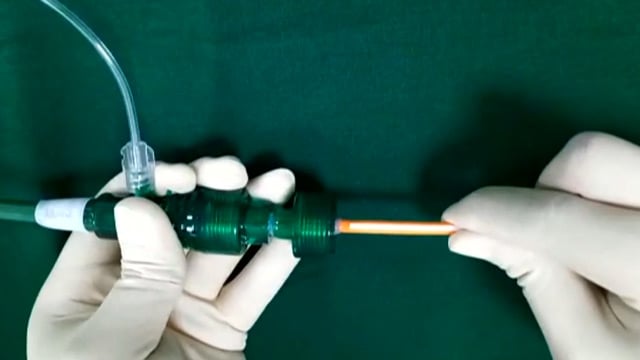
Mitral valvuloplasty - A new look at an old procedure
24 Nov 2024 – From PCR London Valves 2024
Want to sharpen your expertise in mitral valvuloplasty? This video gets straight to the point: learn the best technical approaches, tackle tough clinical decisions with confidence and discover how to manage mitral stenosis during pregnancy!
Through the lens of a compelling real-world case—a 32-year-old pregnant patient with...
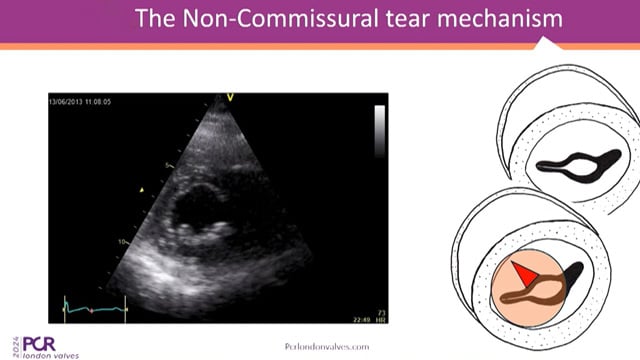
New frontiers in TAVI: have we reached them?
25 Nov 2024 – From PCR London Valves 2024
Discover the latest advancements in TAVI as we look into the results of the EARLY TAVR and RHEIA trials. Explore how these groundbreaking findings may influence clinical practice guidelines and shape the future of TAVI, as well as the remaining unmet clinical needs in TAVI.
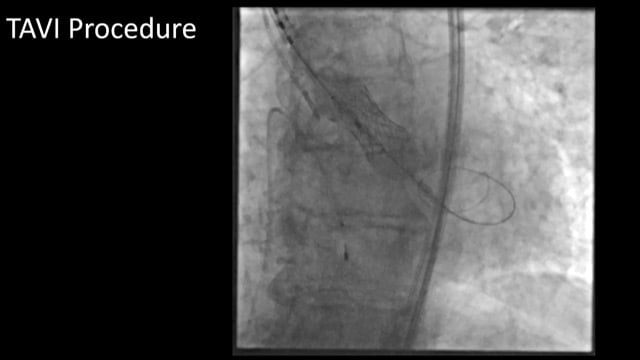
Tricuspid valve intervention - Current indications and timing
24 Nov 2024 – From PCR London Valves 2024
Curious about the latest breakthroughs in tricuspid valve interventions? This video dives right in, showing you how to assess patients with severe tricuspid regurgitation, interpret imaging and biomarkers and apply cutting-edge evidence from randomized trials to real-world cases.
Through 3 compelling clinical cases—each highlighting different stages and...
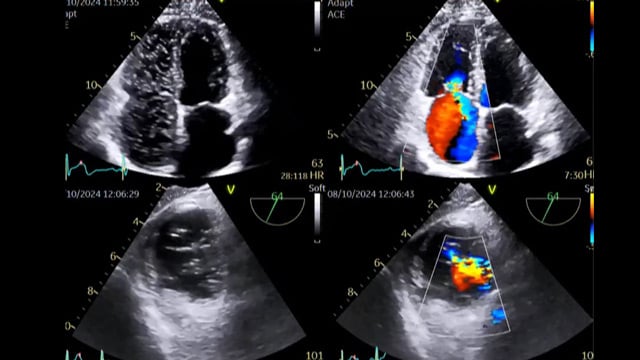
Cinch it if you can - Indirect annuloplasty for functional mitral regurgitation
25 Nov 2024 – From PCR London Valves 2024
This session on mitral regurgitation offers an in-depth look at the EMPOWER trial outcomes, indirect annuloplasty in aFMR, and remodeling with the CARILLON device. Explore the benefits of early treatment for secondary mitral regurgitation, understand the role of left ventricular reverse remodeling, and review the latest...
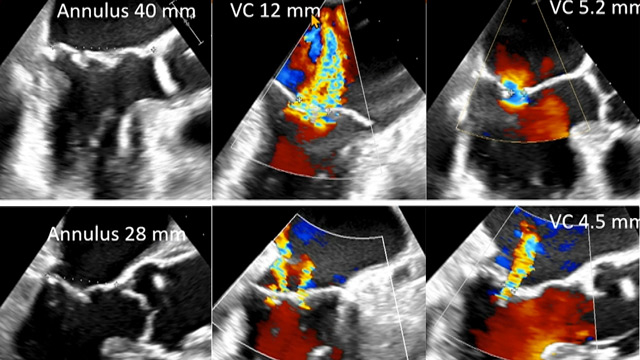
Featured research - Aortic valve (Part 1)
24 Nov 2024 – From PCR London Valves 2024
Dive into the latest research on aortic valve interventions in this two-part featured research session. Explore a wide range of topics, including the safety and efficacy of novel transcatheter aortic valve systems, hemodynamic outcomes, risk scoring, and peri-procedural considerations.
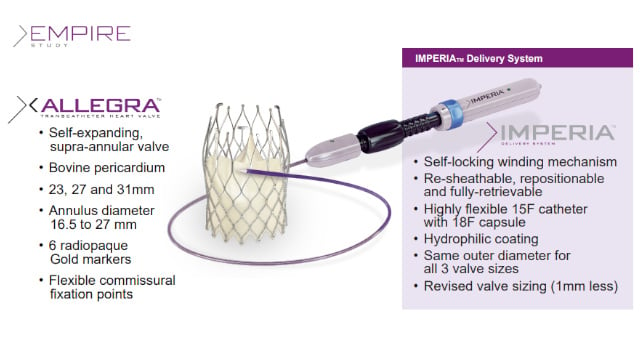
Align for the future with the novel balloon expandable Myval transcatheter heart valve series
26 Nov 2024 – From PCR London Valves 2024
Watch this session to explore expert insights into best-in-class TAVI practices, from pre-procedural imaging and treatment strategy to procedural tips and post-procedural management. Learn from a compelling case study of an 88-year-old male patient with severe symptomatic aortic stenosis treated with the innovative MyVal Octapro THV....

Featured cases - Mitral valve-in-valve (Part 1)
24 Nov 2024 – From PCR London Valves 2024
Immerse yourself in a collection of captivating clinical cases focused on mitral valve-in-valve procedures. Learn from experienced practitioners as they share their approaches to addressing complex challenges, such as paravalvular leaks, difficult anatomies, and innovative techniques.
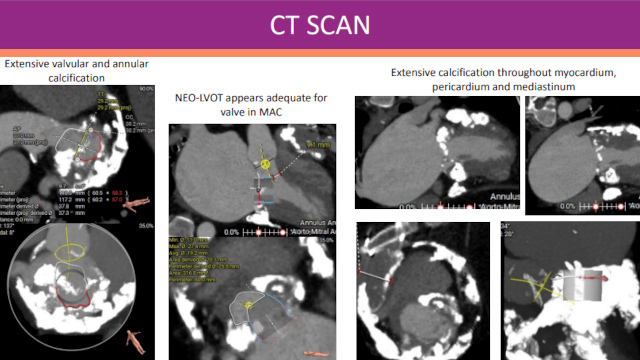
Unlocking the potential of mitral and tricuspid valves clipping
24 Nov 2024 – From PCR London Valves 2024
This session examines two compelling cases: a 78-year-old woman with paroxysmal atrial fibrillation, chest trauma, an osteoporotic sternum fracture, and NYHA II exertional dyspnoea, and an 82-year-old man with chronic three-vessel coronary artery disease, bradycardic AF, peripheral arterial disease, spinal stenosis, and chronic kidney disease. Through...
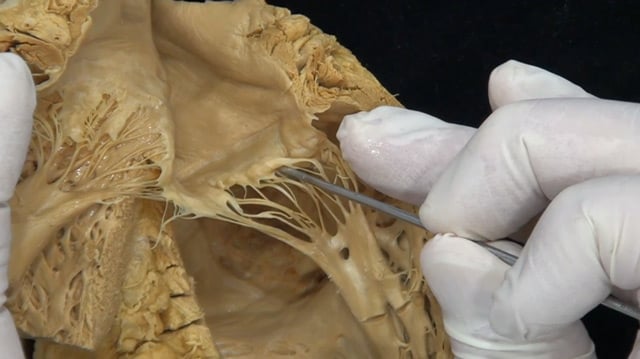
Featured research - Aortic valve (Part 2)
24 Nov 2024 – From PCR London Valves 2024
This second part of the featured research session on aortic valve interventions delves into a wide range of topics, including vascular complications, valve-in-valve TAVI, coronary protection strategies, predictors of mortality, and innovative techniques. Discover the latest advancements and insights from cutting-edge research.
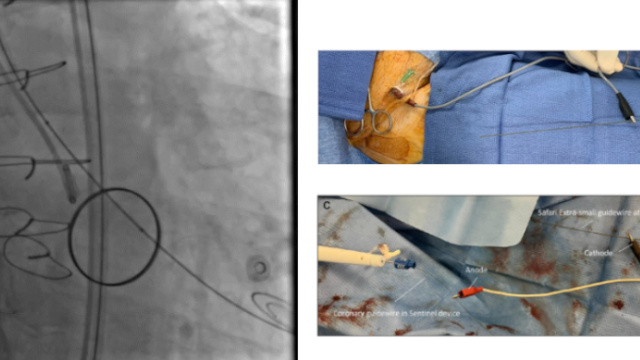
Featured cases - Combined valve interventions (Part 1)
24 Nov 2024 – From PCR London Valves 2024
Explore a captivating collection of featured cases showcasing the art of combined valve interventions. Witness precision and planning in dual-valve symphony, innovative solutions for complex mitral annular calcification, and unexpected twists where the results defy expectations. Delve into transcatheter approaches for aortic bioprosthesis degeneration, mitral repair...
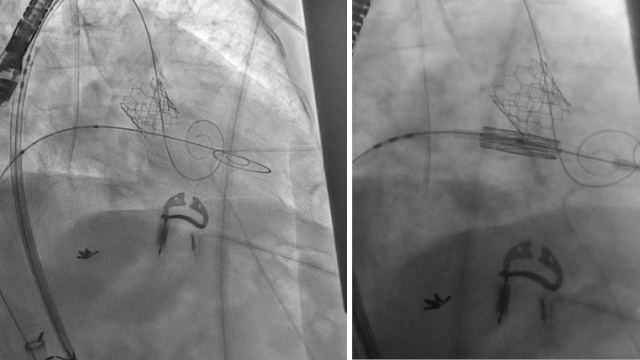
Featured Cases - TAVI in patients with challenging vascular access
24 Nov 2024 – From PCR London Valves 2024
Delve into a collection of captivating TAVI cases that push the boundaries of vascular access challenges. Witness how interventionists navigate complex aortic anatomies, dissections, and rare genetic diseases to deliver life-saving care. Explore innovative approaches such as transbrachial TAVI, transcarotid access, and valve-in-valve TAVI. This session...
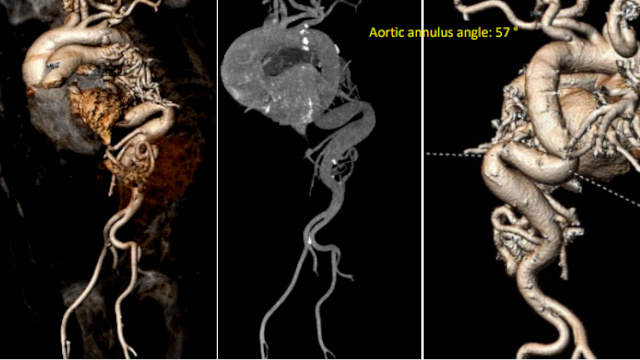
Featured cases - Challenging tricuspid interventions (Part 1)
24 Nov 2024 – From PCR London Valves 2024
Immerse yourself in a captivating collection of featured cases showcasing the latest advances in transcatheter tricuspid valve interventions. Witness groundbreaking techniques, including the first TTVR designed to reduce afterload mismatch, the management of atrial embolization, and the use of intracardiac echocardiography. Explore complex anatomies, failed prior...
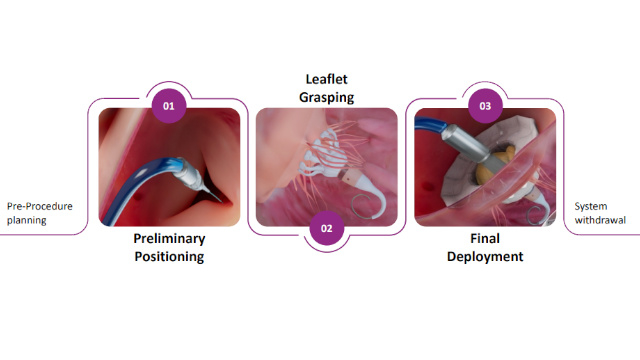
Rapid-fire - Transcatheter solutions for rare complications
24 Nov 2024 – From PCR London Valves 2024
Prepare to be captivated by a rapid-fire session showcasing transcatheter solutions for rare and complex cardiovascular complications. Witness the percutaneous closure of a right ventricular pseudo-aneurysm, the treatment of a VSD complicating myocardial infarction, and the management of iatrogenic left ventricular pseudo-aneurysms. Explore innovative approaches to...
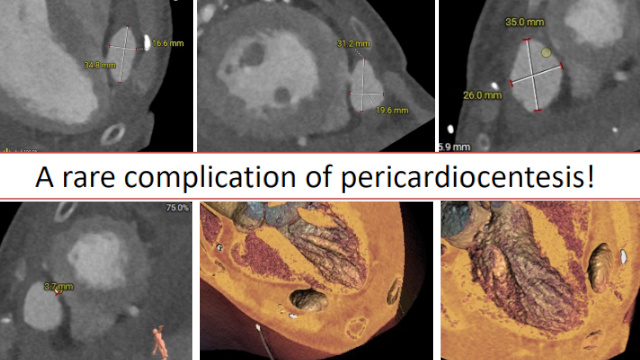
Innovation for transcatheter tricuspid interventions - LIVE case
24 Nov 2024 – From PCR London Valves 2024
Dive into the world of innovation for transcatheter tricuspid interventions. Discuss the remaining challenges associated with currently available options, capture the central role of imaging guidance, and understand the anatomical selection criteria for transcatheter tricuspid valve replacement. Experience a live case from St. Thomas' Hospital, London,...
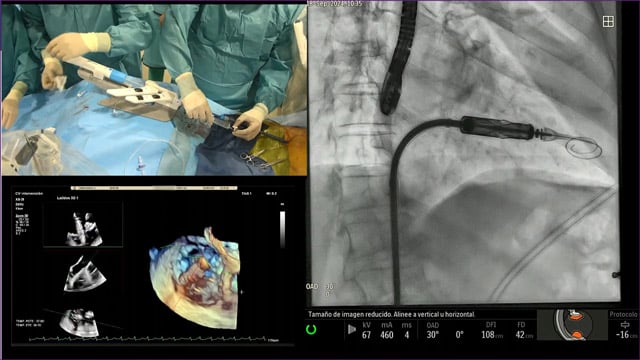
Rapid-fire - TAVI
24 Nov 2024 – From PCR London Valves 2024
Dive into this rapid-fire session showcasing selected PCR London Valves 2024 Clinical Cases submissions related to TAVI. Explore diverse and challenging TAVI scenarios, including TAVI in patients with cardiogenic shock, pure aortic regurgitation, and patient-prosthesis mismatch. Gain insights into troubleshooting techniques and strategies for navigating complex...
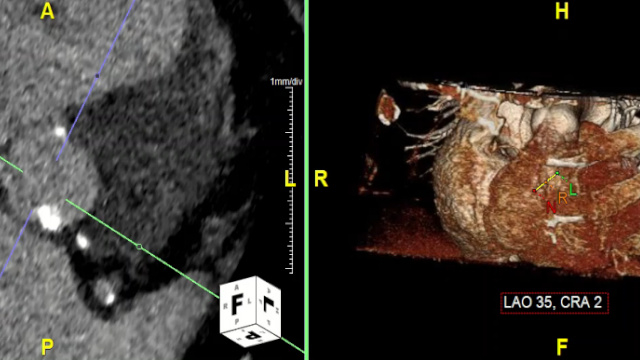
Electrosurgery and leaflet modification: addressing an unmet need for transcatheter valve interventions
24 Nov 2024 – From PCR London Valves 2024
Electrosurgery and leaflet modification are revolutionizing transcatheter valve interventions, addressing unmet needs for patients who lack conventional treatment options. This video offers a deep dive into the clinical applications of these advanced techniques and equips you with the knowledge to implement them effectively.
You’ll discover:
- How electrosurgical tools,...
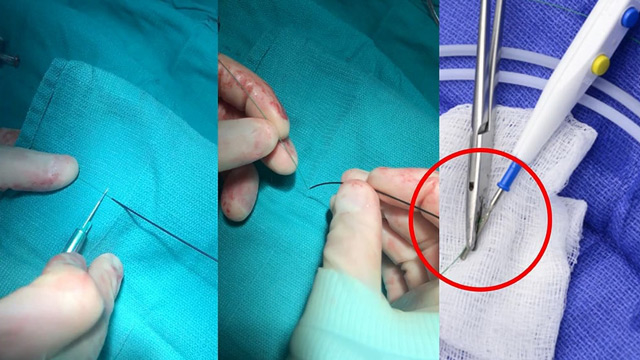
Featured cases - Paravalvular leak closure
24 Nov 2024 – From PCR London Valves 2024
Dive into a captivating session showcasing selected PCR London Valves 2024 clinical cases on paravalvular leak closure. Witness the use of a hybrid approach for aortic paravalvular leaks, the management of infective endocarditis complications, and the percutaneous treatment of complex malpositioned valves. Explore interventions to address...
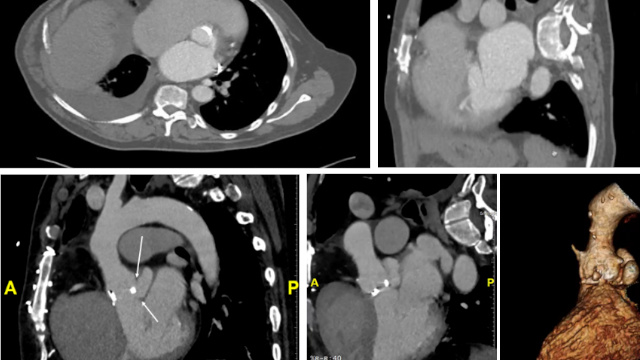
Pre-emptive TAVI for asymptomatic severe aortic stenosis - From headlines to clinical practice
24 Nov 2024 – From PCR London Valves 2024
Is early TAVI the right choice for your asymptomatic patients with severe aortic stenosis? In this video, we break down the latest clinical trials, including EARLY TAVR and EVOLVED, to help you navigate the complex decision-making process.
Find out what these studies really tell us about the...
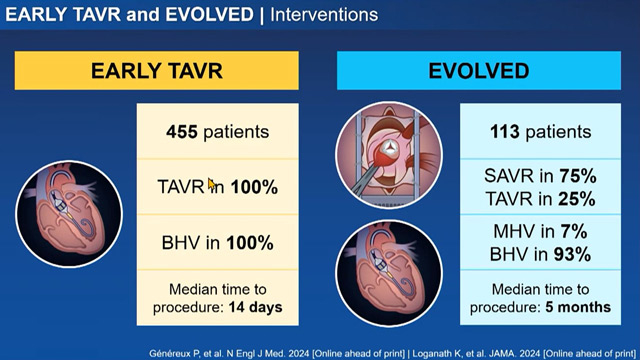
Rapid-fire - TAVI in aortic regurgitation
24 Nov 2024 – From PCR London Valves 2024
Prepare to be captivated by a rapid-fire session showcasing selected PCR London Valves 2024 clinical cases on TAVI in aortic regurgitation. Witness the first-in-man deployment of the Abbott Navitor Valve for left ventricular assist device-associated aortic regurgitation, as well as cases involving severe aortic regurgitation in...
